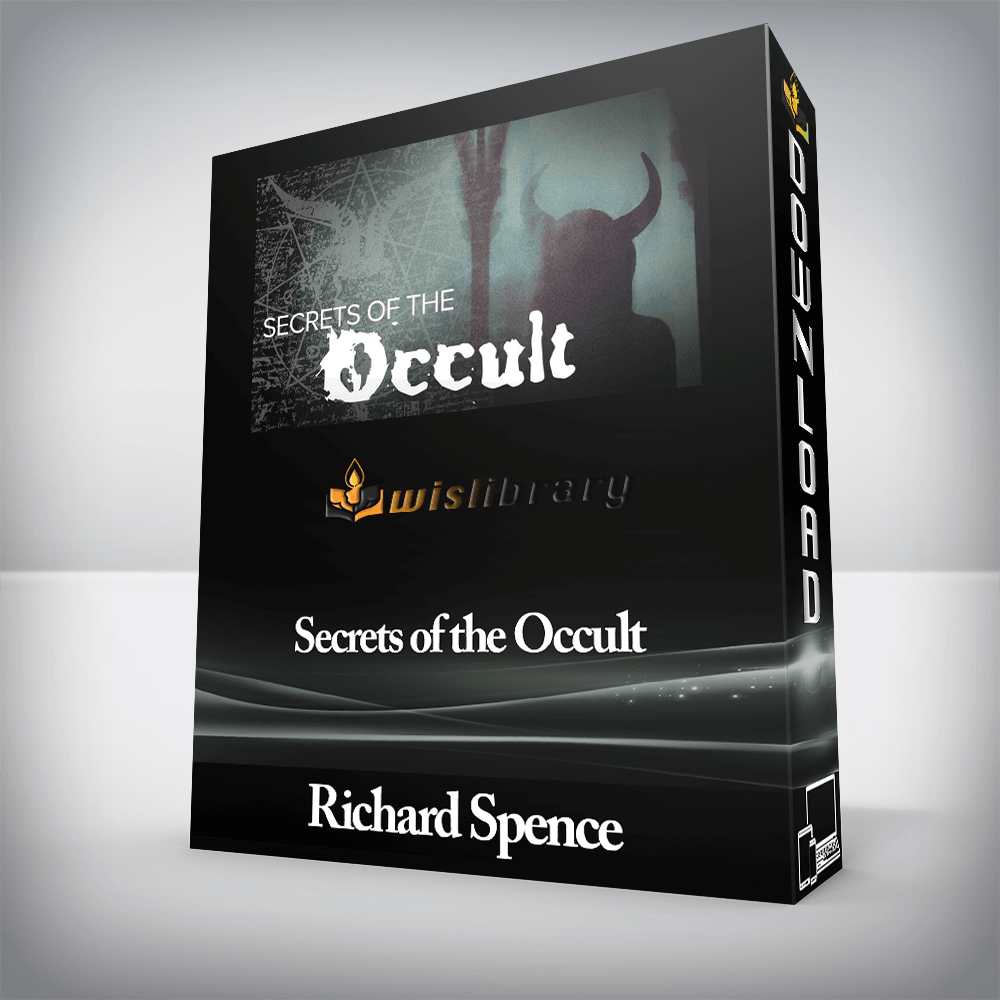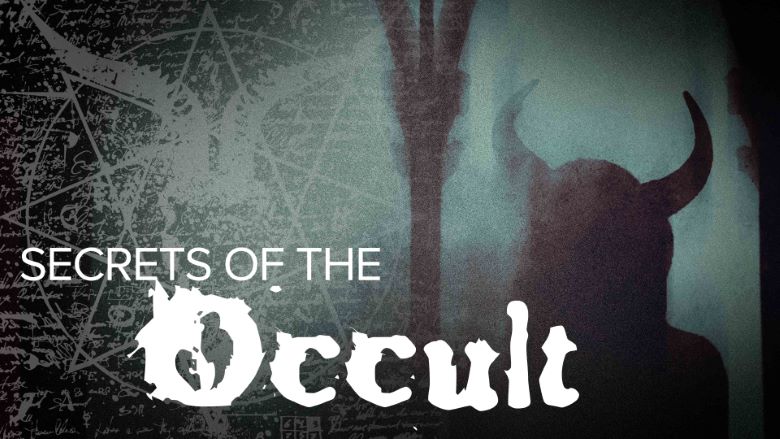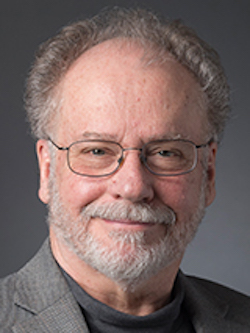

This course covers a wide array of subjects and experiences that address the occult and stretch from the ancient world…


A key theme is that human history, behavior and reality are governed not by what we know but by what we believe.
Institution: University of Idaho
Alma mater: University of California, Santa Barbara
The term “occult” most often evokes images of the dark and sinister. Shadowy adepts performing magical rituals with dubious intentions and questionable ingredients. The devil himself may be in attendance. Yet, occult really just means hidden.
From spirituality to politics and science, the occult has had an astonishing influence on the human experience across the centuries. Perhaps, it may surprise you to learn that everyday activities like attending church services or reading your daily horoscope fall under the wide umbrella of the occult. As you will see in the 24 illuminating episodes of Secrets of the Occult, the mystic and obscure are threaded through our ordinary lives in more ways than you may realize.
This revealing course is taught by Richard B. Spence, a Professor Emeritus at the University of Idaho. It covers a wide array of subjects and experiences that address the occult and stretch from the ancient world to the 21st century. According to Professor Spence, “Occultism posits that we inhabit a limited spectrum of reality within a much larger one. We’re arguably surrounded by a larger world that we normally can’t see, or touch, or knowingly interact with. This larger world is hidden or ‘occulted’ from us. However, the beliefs and practices broadly referred to as occultism aim to reveal, access—or even control—elements of this hidden world.” Throughout these episodes, you will uncover these hidden elements and consider what these revelations have to say about our perception of the world.
Mysteries of the Ancient World
The occult is as old as humanity itself; we have found evidence of spiritual practices and magical rituals in art and artifacts that date back as far as the Ice Age. Sometimes, the occult is used to build and maintain power. Other times, it is a path to knowledge or enlightenment for ordinary individuals. Either way, it’s nothing new. Looking back to the ancient world, you will trace many stories, practices, and belief systems that influenced future generations in crucial and surprising ways.
For example, you will consider the roots of modern science through the lens of ancient and early modern occultism. Alchemists were not just about turning lead into gold. The real goal was their own transformation into a higher state of being. And another occult practice, astrology, would inform the development of astronomy and our search for answers in the stars would produce amazing new discoveries. After all, there was very little separation, if any, between science and the occult before the transformations of the Renaissance and the Enlightenment—and even then, the occult maintained a closer connection to science and scholarship than you might think.
You will also see how ancient beliefs thread their way through history and continue into modern life. Whether we treat them as fiction or reality, many of these occult elements tell us something about the human psyche and our need to reach out into the universe for help, comfort, and understanding, or to uncover hidden dangers. Consider:
You will explore these and many other questions as you uncover the hidden symbols, rituals, beings, and doctrines of occultism from their ancient origins to their contemporary influences.
The Power of the Occult
The occult isn’t something that only takes place in midnight graveyards or among creepy cultists. As you will discover, it surrounds us everywhere and influences our daily lives in ways so familiar that we don’t even think about them. English occultist Aleister Crowley once defined magic as the use of will to effect change. So, whether we are using the “power of positive thinking” or turning to the “higher power” invoked by institutions like Alcoholics Anonymous, humans often turn to an invisible source of strength and ability to help guide us through our troubles and achieve our greatest desires.
While the occult, at least in the modern world, has often been associated with rebels and outsiders, it has also long been a means of acquiring and maintaining power for religious and political ends that have deeply affected millions of people. One of the most notorious assertions of occult influence is the theory of Nazi occultism, drawn from the regime’s fascination with symbols and arcane knowledge that some high-ranking members believed would aid in their quest to conquer Europe. The symbols and alleged mystical practices of the Nazis were often appropriated from other occult traditions. Like the swastika. Some even believe that the Nazis were themselves the tools of dark, occult forces.
Fascination with the occult has frequently been used by charlatans and grifters to cheat believers out of their money and their peace of mind. Separating the sincere practitioners from those out to defraud gullible or desperate victims is difficult and some individuals—including famous figures like Harry Houdini—crusaded to debunk occult practices and protect people from con artists.
With such a questionable history, it can be difficult to separate the genuine believers from the frauds and criminals. Yet, by looking at the occult with all its positive and negative elements, you will be able to get a richer and more comprehensive understanding of its powerful influence—and even its potential truths.
As Above, So Below
As Professor Spence reiterates throughout Secrets of the Occult, good and evil are matters of intent. The occult has a long-standing reputation for moral ambiguity, and many associate esoteric beliefs and practices with outright evil. But the occult casts a wide net that includes deeply rooted cultural practices and surprisingly modern concepts. As you explore this world of hidden mysteries and magical undertakings through an impartial lens, you will be introduced to fascinating alternative ways of perceiving the world around you.
These episodes, while mostly focused on Western occultism, demonstrate that the occult is both universal and timeless. It’s also infinitely adaptable. That means the occult isn’t some artifact of the past. It always adapts. It exists today, and will continue to do so, ever evolving.
Whether you accept occult perspectives as possible truth or reject them as desperate fantasy, the occult still has something to say about our relationship to the world, and even to reality itself. Science has solved many of the great mysteries of the universe, and yet, there are still so many questions left unanswered. Could some of these answers be found in the realm of arcane knowledge and mystic beliefs? What can the occult teach us about the universe and our place in it? With this journey through the occult across the ages, you will get the chance to pull back the curtain shrouding these mysteries and decide for yourself.
1What Is the Occult?
2Fauns, Fairies, and Djinn
3The Christmas Tree and Other Rituals
4Practical Magic: Love, Money, and Health
5Alchemy, Astrology, and Divination
6Talking with the Dead
7The Occult Ancient World
8Vampires, Werewolves, and Zombies
9Religious Faith and the Occult
10Mysterious Places
11Crime and the Occult
12UFOs and the Occult
13The Occult Russian Revolution
14Hitler, Nazism, and the Occult
15The Occult Soviet Union
16Satanism and the Occult
17The Occult Renaissance and Reformation
18Witchcraft and the Occult
19The Occult Enlightenment
20American Occultism
21The Occult’s 19th-Century Revival
22Aleister Crowley’s Occult Life
23Popular Occulture
24The Techno-Occult
There are no reviews yet.
You must be <a href="https://wislibrary.org/my-account/">logged in</a> to post a review.